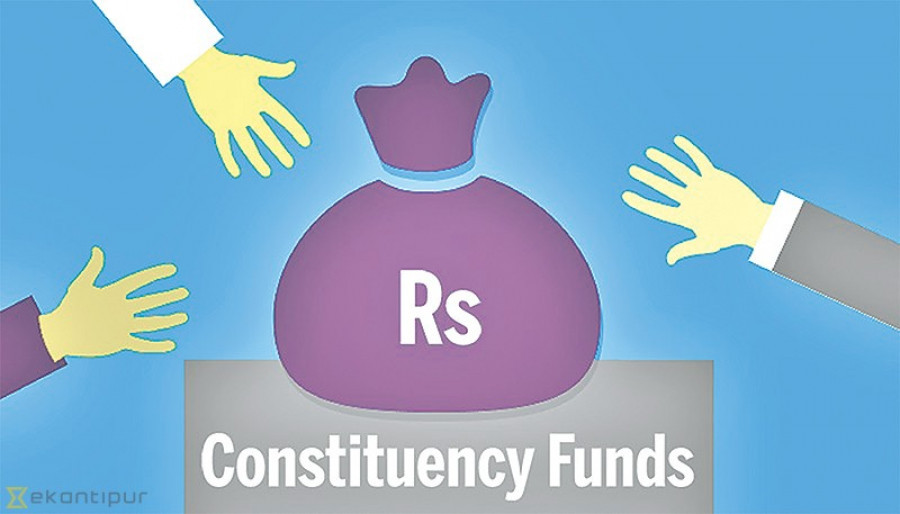National
Federal government stops releasing budget for constituency development programme
The move comes after the government decided to transfer the saved amount for fighting Covid-19.
Prithvi Man Shrestha
The federal government has discontinued releasing resources for projects under the Local Infrastructure Development Partnership Programme starting from early last week, as the government has decided to invest the unused funds under the programme for Covid-19 response.
The Cabinet on June 16 had approved an amendment to the regulation governing the Local Infrastructure Development Partnership Programme, allowing transfer of its unused funds to Covid-19 accounts at the local level. The local governments were told to get the remaining funds in their Covid-19 accounts by June 29.
“Right after the deadline to take the funds expired on June 29, we have stopped releasing any resources that come for implementing any other projects under the programme,” Gopinath Mainali, financial comptroller general at the Financial Comptroller General Office, told the Post.
The office is responsible for keeping records of income and expenditure of the government.
Until June 29, the local governments, which are implementing agencies under the controversial Local Infrastructure Development Partnership Programme, could get resources to implement projects if there had been any progress in works and payments needed to be made. “After that deadline, the budget has not been released from the district treasury offices even if the liabilities have already been created under the programme.”
After the Cabinet decision, the programme directorate committee headed by the directly elated lawmaker of the particular constituency is supposed to determine the saved amount and decide to hand over the amount to local Covid-19 accounts. “If this process has not been completed by June 29, the remaining amount will remain frozen,” said Mainali.
For the current fiscal year, nearly Rs 10 billion was allocated to implement the programme—Rs60 million for each electoral constituency.
The programme has long been controversial due to the outsized role of the lawmakers in determining the projects and their implementation.
Most of the projects identified and implemented in the past were small, fragmented and with hardly any social impact. As a result, the lawmakers were charged with pouring money in their pet projects to earn votes.
Due to Covid-19 pandemic, there has been little progress in the projects implemented under this programme.
Until last month, the officials at the Financial Comptroller General Office were saying that only 10 percent of the allocated budget had been spent. Mainali said that the spending may have increased after the lockdown was relaxed.
Ashok Byanju Shrestha, president of Municipal Association of Nepal, said that expenditure under the programme has not been impressive this fiscal year due to prolonged lockdown. “Project implementation under the programme is limited in many municipalities,” he said.
Amid limited works under the programme there was a growing pressure to transfer the unused fund to Covid-19 response and the government duly decided to transfer the amount to fight the disease last month.
Despite controversy regarding the programme and greater resources needed for fighting Covid-19, the government has continued the programme even for the next fiscal year 2020-21. The government has reduced the budget for each constituency to Rs40 million under th Local Infrastructure Development Partnership Programme.




 14.24°C Kathmandu
14.24°C Kathmandu















